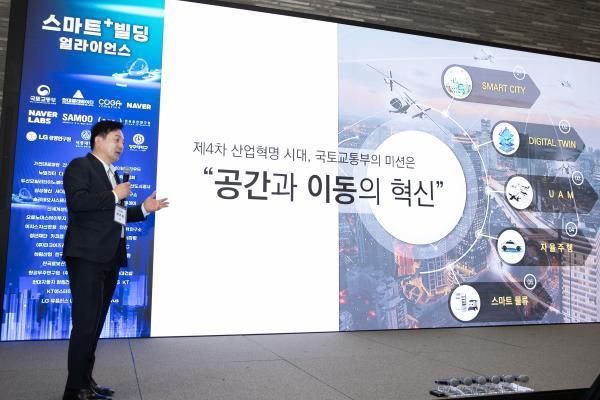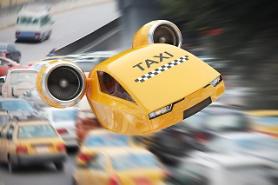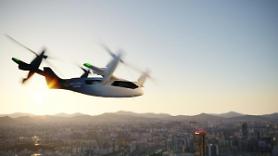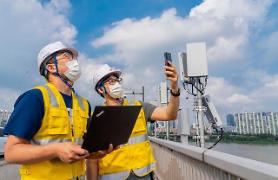
Smart buildings should have enough space for easy operation of flying passenger vehicles and other advanced mobility solutions. Building structures must be modified to install vertiports and obstacles such as protruding door frames must be removed so that robots can freely move around. Space for the control tower and charging facilities for autonomous robots are also necessary. For self-driving cars, automated and mechanical parking facilities are essential. To establish convenient transfer routes, vehicle elevators also need to be installed.
The Ministry of Land, Infrastructure and Transport revealed its roadmap to establish infrastructure for 10,000 smart buildings by 2035. The ministry will work with 28 organizations including South Korea's Hyundai auto group, Hyundai Elevator, a leading domestic elevator maker, and Naver Labs specializing in artificial intelligence, robot, and autonomous technology.
Urban structures including Gacheon University Gil Medical Center in the western port city of Incheon and City Hall in Goyang, a northwestern satellite city of Seoul, will be transformed into smart buildings. In the first half of 2024, the government will hold an open design competition to select the most effective robot-friendly apartments for Goyang Changreung, a planned district in Goyang.
"We will work hard to expand new mobility solutions, logistics, and environments so that people can experience the outcomes of the 4th industrial revolution, like UAM, autonomous driving, and robots," the transport minister Won Hee-ryong said during a press conference on December 19.
Through UAM Team Korea, a public-private consultative body, South Korea plans to commercialize manned drone taxis in 2025. Remote-controlled vehicles will be adopted in 2030 and a fully autonomous service in 2035. A safety manager will board each flying vehicle until pilots are no longer needed.
Copyright ⓒ Aju Press All rights reserved.




